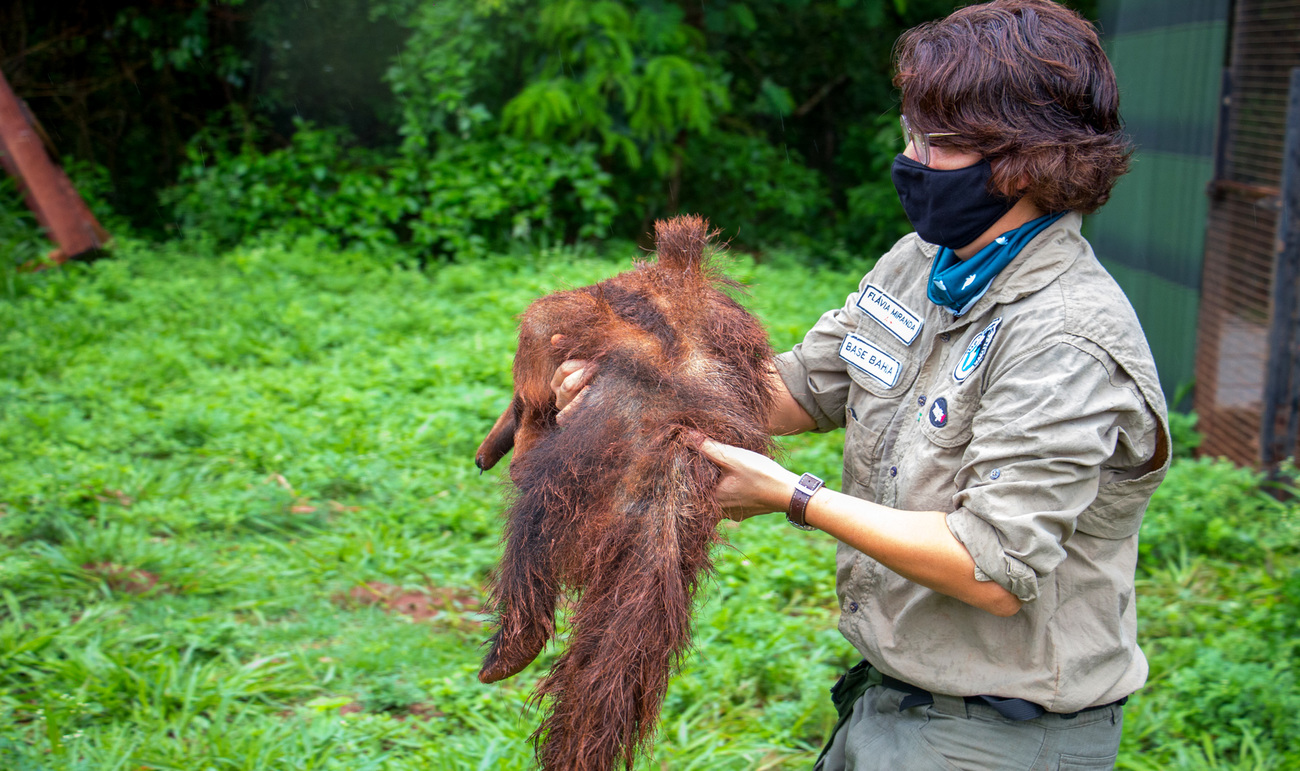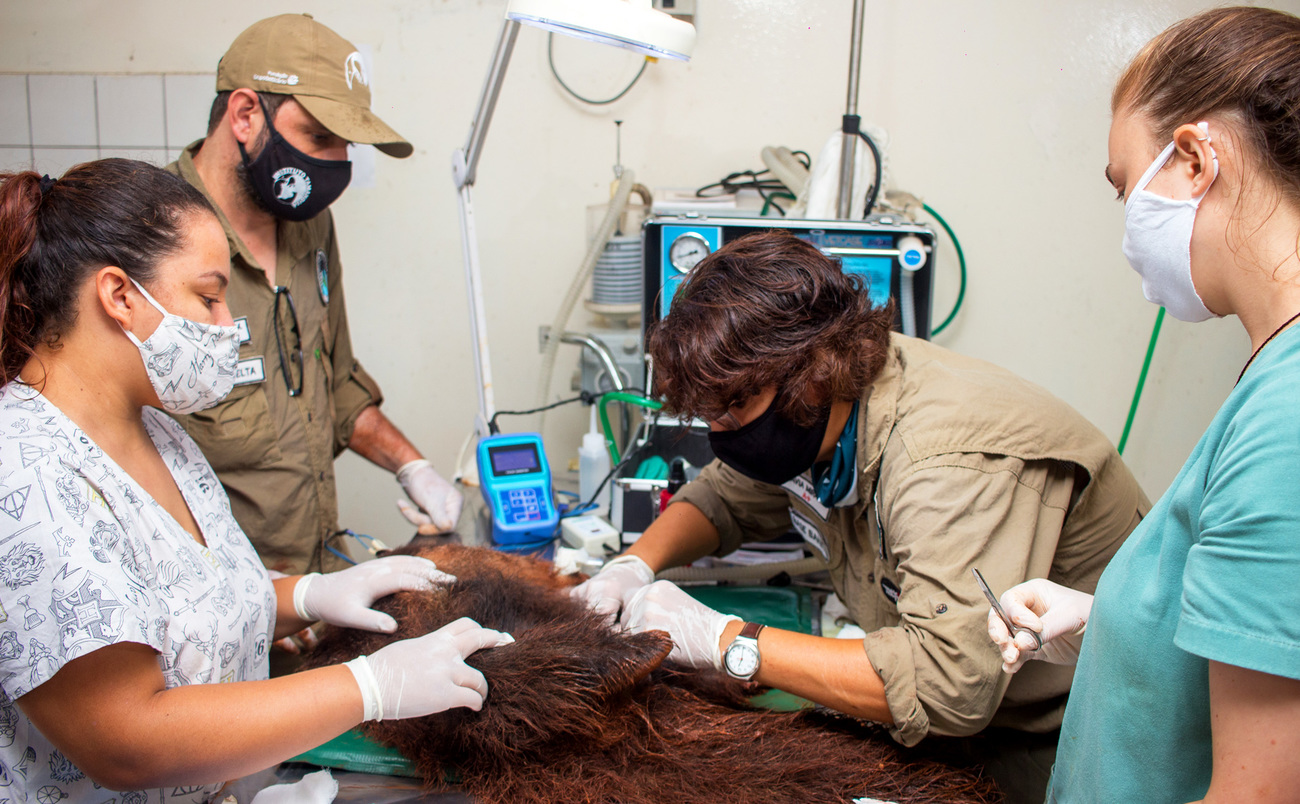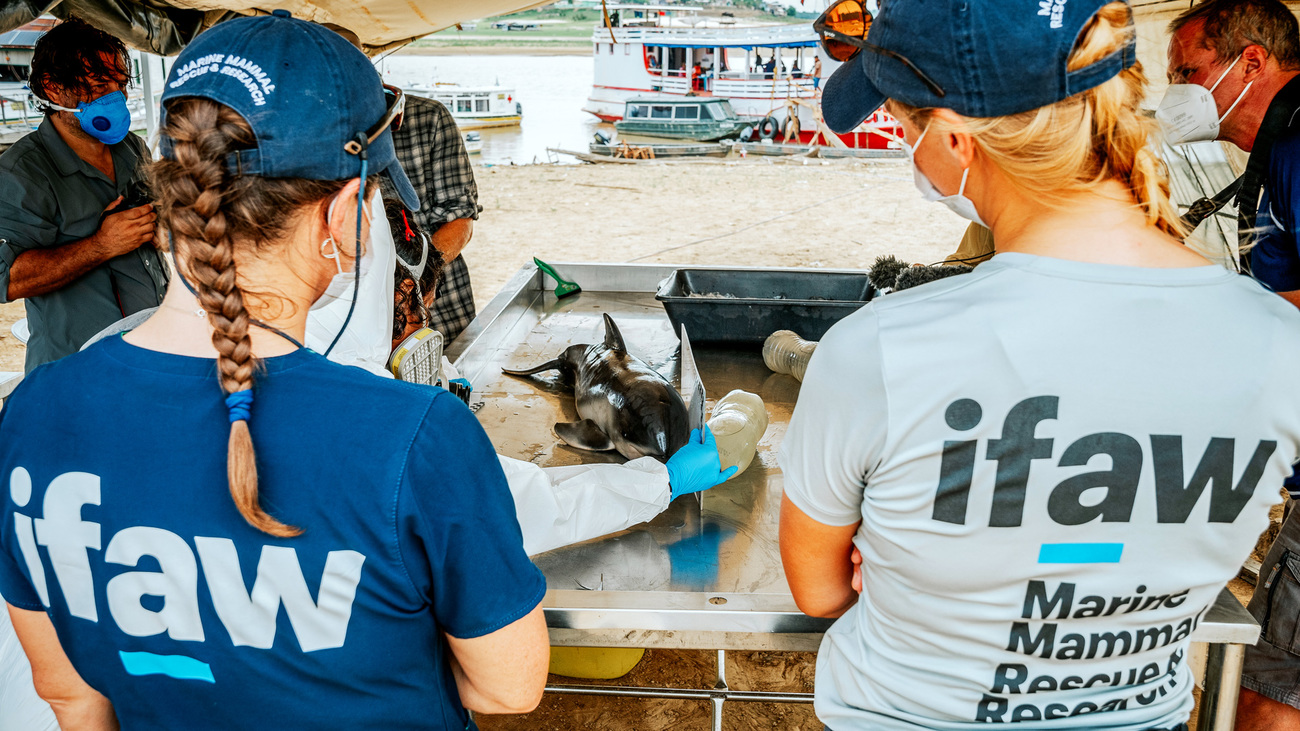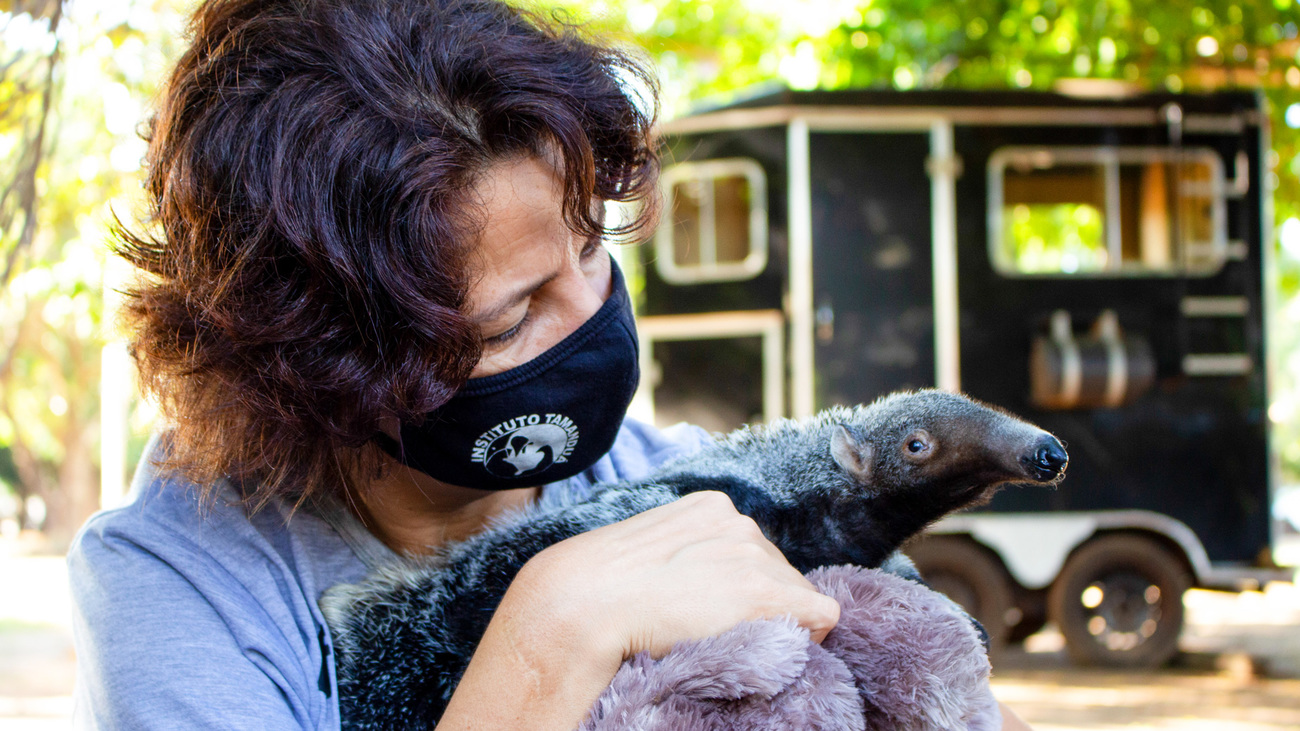Blog
What is Earth Day?
Read moreProtecting Brazil’s diverse wildlife from climate disasters
Brazil is the most biologically diverse country in the world, home to up to 20% of the world’s species—and we don’t even know the full extent of its wonders. Around 700 new animal species are discovered here every year.
This one country has the world’s largest freshwater wetland (the Pantanal), the ‘lungs of the planet’ (the Amazon rainforest), and the world’s most biodiverse savannah (the Cerrado). Jaguars, giant anteaters, and river dolphins all make their homes in these unique ecosystems.

But these ecosystems—and the irreplaceable species who live there—are increasingly under threat from climate-exacerbated disasters. In 2024 alone, the Global Wildfire Information System detected over 62,000 wildfires that burned over 46 million hectares (nearly 114 million acres) of the Pantanal, the Amazon rainforest, and the Cerrado. Satellite data showed a 935% increase in fires in the first half of the year compared to the same period in 2023.
Dr. Flavia Miranda, founder and president of IFAW’s partner Tamanduá Institute in the Pantanal, describes the long-term consequences of the 2024 fires: ‘If there is another fire of this magnitude, we run the risk of reaching a point of no return. But I also do not see any preparation on the part of decisionmakers.’
She continues: ‘The impact is so great that we can't even count it. We've lost more than 3 million hectares this year, along with many fish, amphibians, reptiles, and mammals. Many birds had their nests burned. The number of dead insects is in the thousands.
‘Right now, the Pantanal is green because it is raining, but many people do not understand that not all plant species are being reborn, that the soil microbiota has changed, and that the number of fauna has decreased. It is worth remembering that many pollinating insects have died, which will make a difference in the recovery of this biome.’
IFAW works with partners in Brazil to rescue, rehabilitate, and—whenever possible—release animals affected by disasters.
In 2020, after wildfires in the Pantanal killed millions of animals, we supported the Tamanduá Institute to establish the Orphans of Fire project, which rescues orphaned giant anteaters. The project has rehabilitated and released some of these iconic animals with GPS harnesses, so researchers can understand them better. Learning more about their movements and how they live helps us address the real risks they face.

One of the released orphans, Tupã, thrived in the wild. Tragically, another of the orphans, Venus, was later found dead on a ranch, most likely a case of human–wildlife conflict. Her death is a stark reminder of why our work with local communities is so important.
Fires are not the only disasters threatening wildlife here. In October 2023, a severe drought, record-breaking high temperatures, and low water levels led to a mass die off of endangered Amazon and Tucuxi river dolphins. At the invitation of Mamiraua Institute for Sustainable Development (Instituto de Desenvolvimento Sustentável Mamirauá), IFAW sent two of our marine mammal stranding experts to support the rescue operation.
Their mission was not only to save as many dolphins as possible but to secure the future of the species by helping local responders prepare for similar future disasters. Their deployment was possible thanks to the generous support of the Dutch Postcode Lottery.

When devastating floods hit southern Brazil in May 2024, we supported veterinary first responders and the animal search and rescue efforts. The Pantanal Technical Animal Rescue Group (GRETAP) rescued and cared for over 5,000 animals, both domestic and wild. The response team—which included members of the IFAW-supported Tamanduá Institute—provided veterinary care, reunited people with their companion animals, and even set up feeding stations on rooftops for cats.
Climate-related disasters are becoming more frequent and intense. Combining that with huge distances and complex terrain makes rescuing animals very complicated.
‘The biggest challenge is reaching the animal and rescuing it quickly,’ Flavia says. ‘The Pantanal is a very large biome with few roads. Access is always by air, which makes it difficult to transport animals.
‘Another major problem is the lack of support hospitals to stabilise the animal before a long journey. Animals often die on the way to the hospital.’
Some of these tragic deaths would be preventable with the right resources. That’s why Tamanduá Institute is setting up a veterinary hospital at a strategic point in the Pantanal. The hospital will not only support rescues and transportation but will also serve as a first response point in climate emergencies.

IFAW recognises the value of every individual animal. Each can be the difference between a species surviving or dying out completely. In a country like Brazil, with such rich and important biodiversity, rescuing animals is not simply the right thing to do. It is also essential for securing our own survival and the health of our planet.
Biodiversity supports human life and supports our resilience to and mitigation of climate change—we work to protect biodiversity as a nature-based climate solution to help us avoid disasters like these in the future. But should disaster strike, we must be prepared to respond to save these species that are of such great importance.
Every problem has a solution, every solution needs support.
The problems we face are urgent, complicated, and resistant to change. Real solutions demand creativity, hard work and involvement from people like you.
Unfortunately, the browser you use is outdated and does not allow you to display the site correctly. Please install any of the modern browsers, for example:
Google Chrome Firefox Safari